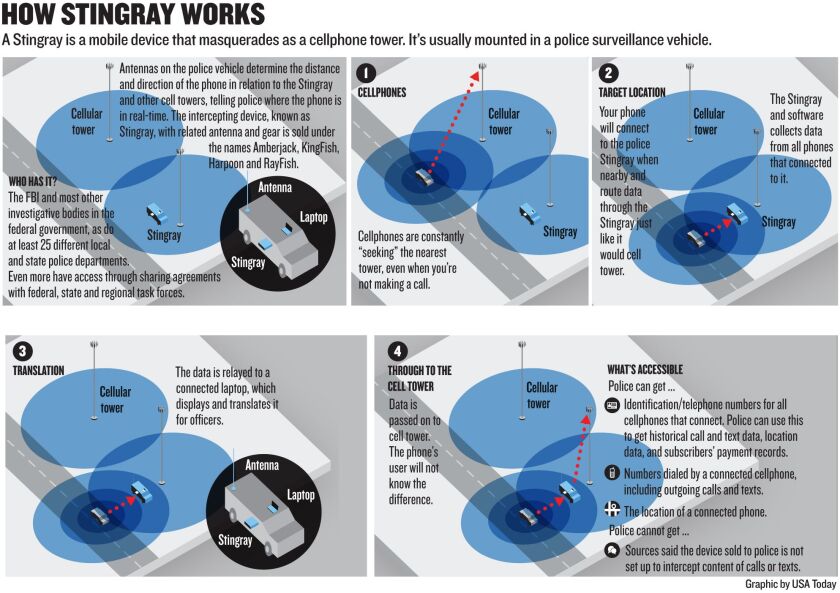The Chicago Police Department has settled a lawsuit that sought records showing how it has used secret cellular tracking systems — known by several brand names including StingRay, the lawyer who filed the case said Tuesday.
The department is expected to turn over the documents in about a week, attorney Matthew Topic said. Topic, of the Loevy & Loevy law firm, filed the Freedom of Information lawsuit in 2014 in Cook County Circuit Court on behalf of Freddy Martinez, a Chicago man who works in the software industry.
“The city has always said these devices are used in high-level cases, terrorism and things like that,” Martinez said. “But they have never proven that’s the case. We want to see these documents to see that it’s true. We’d like to see what these cases are really about and just how often they are being used.”
The city has been using cell-site simulators for more than a decade and has disclosed that it has spent hundreds of thousands of dollars on them. But until now, the city wouldn’t say how they were being used.
StingRays and other such devices work like electronic vacuum machines, collecting cellphone data in a large area surrounding the devices. In other cities, police have said they use the devices to locate criminals or kidnapping victims.
The devices can determine a mobile phone’s location and reportedly can intercept calls and text messages in some cases.
But some civil-rights activists object to such an indiscriminate collection of personal data. Activists also fear the police are using the devices to spy on protesters. And they wonder what kind of permission the police are obtaining from the courts to conduct such surveillance.
In July, Gov. Bruce Rauner signed the Citizen Privacy Protection Act, which requires police to seek court approval before deploying such cellular tracking systems. Police must tell the court whether the devices are expected to scoop up information from “non-target communication devices,” and the police must delete that information. The law goes into effect on Jan. 1.






